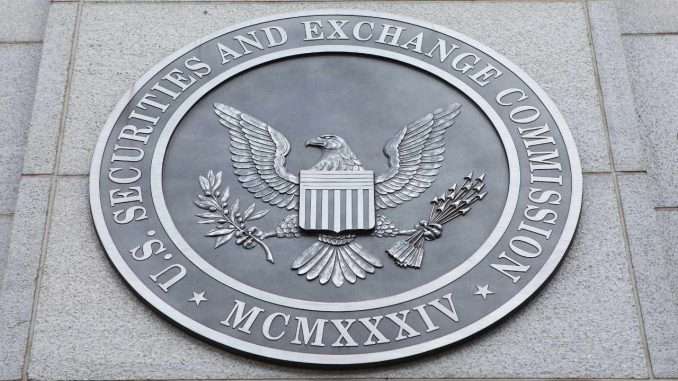
The U.S. Securities and Exchange Commission (SEC) has charged crypto change Gemini and crypto lender Genesis Global Capital, a subsidiary of Digital Currency Group (DCG). “Through this unregistered offering, Genesis and Gemini raised billions of dollars’ worth of crypto assets from hundreds of thousands of investors,” the SEC alleged.
SEC Takes Action Against Gemini and Genesis
The U.S. Securities and Exchange Commission (SEC) introduced Thursday that it has charged Genesis Global Capital LLC and Gemini Trust Company LLC “for the unregistered offer and sale of securities to retail investors through the Gemini Earn crypto asset lending program.” Genesis is a part of a subsidiary of Digital Currency Group (DCG). Noting that the investigation is ongoing, the regulator alleged:
Through this unregistered providing, Genesis and Gemini raised billions of {dollars}’ value of crypto property from lots of of 1000’s of traders.
The SEC described that in December 2020, Genesis entered into an settlement with Gemini to supply Gemini prospects, together with retail traders within the U.S., “an opportunity to loan their crypto assets to Genesis in exchange for Genesis’ promise to pay interest.”
The two corporations supplied the Gemini Earn cryptocurrency lending program to retail traders between February 2021 and November 2022, the securities watchdog continued, including: “More than 50 crypto assets were eligible to be invested in the Gemini Earn program, including bitcoin, ether, USD Coin, and dogecoin.”
According to the SEC:
Gemini Earn traders tendered their crypto property to Genesis, with Gemini performing because the agent to facilitate the transaction. Genesis then exercised its discretion in how you can use traders’ crypto property to generate income and pay curiosity to Gemini Earn traders.
Genesis Halts Withdrawals
The SEC detailed that Genesis introduced in November final 12 months that Gemini Earn traders wouldn’t be allowed to withdraw their crypto property “because Genesis lacked sufficient liquid assets to meet withdrawal requests following volatility in the crypto asset market.”
At that point, “Genesis held approximately $900 million in investor assets from 340,000 Gemini Earn investors,” the SEC added, noting:
Gemini terminated the Gemini Earn program earlier this month. As of immediately, the Gemini Earn retail traders have nonetheless not been capable of withdraw their crypto property.
Last week, Gemini co-founder Cameron Winklevoss printed an open letter to DCG CEO Barry Silbert concerning the withdrawal freeze. In a follow-up letter, he demanded the resignation of Silbert. The DCG boss then wrote a letter to shareholders to handle accusations in opposition to him.
Gemini’s Co-Founder Calls SEC Action ‘Super Lame’
Following the announcement of the SEC lawsuit in opposition to the 2 crypto companies, Tyler Winklevoss, one other Gemini co-founder, took to Twitter to slam the securities watchdog. He defined that the Gemini Earn crypto lending program was regulated by the New York Department of Financial Services (NYDFS).
In addition, Winklevoss revealed: “We’ve been in discussions with the SEC about the Earn program for more than 17 months … They never raised the prospect of any enforcement action until after Genesis paused withdrawals on November 16th.” He opined:
Despite these ongoing conversations, the SEC selected to announce their lawsuit to the press earlier than notifying us. Super lame.
“It’s unfortunate that they’re optimizing for political points instead of helping us advance the cause of 340,000 Earn users and other creditors,” the Gemini co-founder concluded.
What do you concentrate on the SEC taking motion in opposition to Gemini and Genesis over the Earn crypto lending program? Let us know within the feedback part under.
Image Credits: Shutterstock, Pixabay, Wiki Commons
Disclaimer: This article is for informational functions solely. It shouldn’t be a direct provide or solicitation of a proposal to purchase or promote, or a suggestion or endorsement of any merchandise, companies, or corporations. Bitcoin.com doesn’t present funding, tax, authorized, or accounting recommendation. Neither the corporate nor the creator is accountable, instantly or not directly, for any harm or loss prompted or alleged to be attributable to or in reference to using or reliance on any content material, items or companies talked about on this article.



